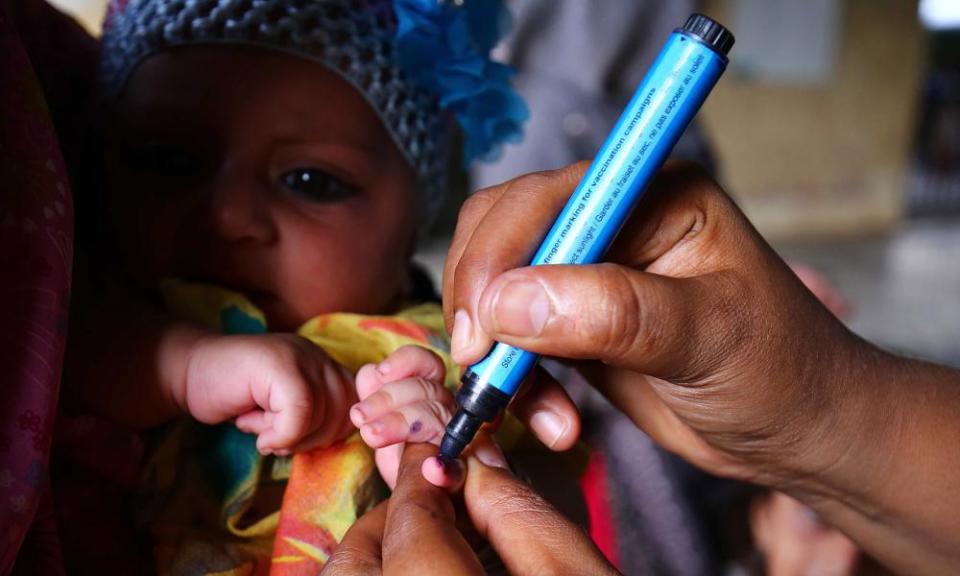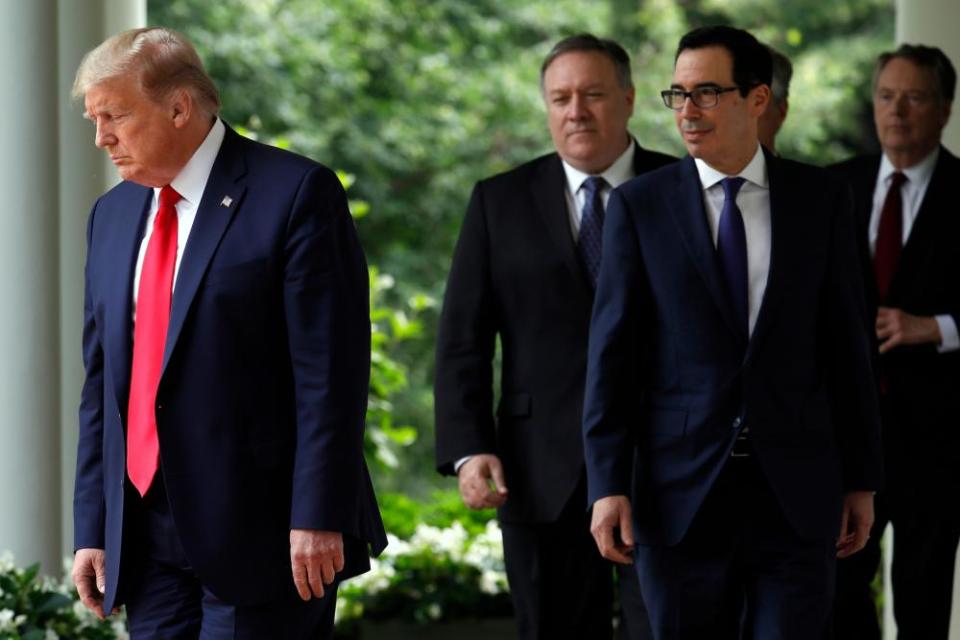Pakistan polio fears as Covid-19 causes millions of children to miss vaccinations

In April, almost 40 million children missed their polio drops in Pakistan after the cancellation of the nationwide vaccination campaign.
Alongside Afghanistan, Pakistan is one of only two countries in the world where polio is still endemic. It was very close to becoming polio free, with only 12 cases in 2018, but last year the number of cases rose to 147. In the same year, Pakistan was accused of covering up the resurgence of the P2 strain of the virus, which was thought to have been eradicated in 2014.
Last year had been a challenge as polio bounced back, Dr Rana Muhammad Safdar, national coordinator for polio eradication, told the Guardian. “We will plan a nationwide campaign as soon as we get an opportunity. But we are equally worried about routine immunisation campaigns as those are being missed due to Covid-19. I fear for the outbreak of vaccine drive diseases, such as measles.”
So far this year 47 cases have been reported. The Guardian talked to six Pakistani polio officials and scientific experts, who are not officially allowed to talk to the media. They fear that Pakistan is back to 2014 levels, the worst year in recent records.
The Global Polio Eradication Initiative (GPEI) recommended on 24 March that all vaccination programmes be paused until the second half of the year. “We did not want to have the programme be responsible for worsening the situation with Covid-19,” said Michel Zaffran, director of the World Health Organization-led group.
Senator Ayesha Raza Farooq, who received an award for her work against polio, told the Guardian the pause was dangerous. “If one programme was not effective, we would call it a disaster, but missing an entire national campaign would have unimaginable consequences.”
Officials say the disease has spread beyond the three core areas of Karachi, Quetta and Peshawar, and is now present in central Pakistan. The virus spreads easily in summer and this year could see more than 200 cases.
“Nothing can be worse than this situation. We have positive samples everywhere. It is strengthening and spreading,” a scientific expert in the programme told the Guardian.
Pakistan has received international funding for polio eradication since 1994, but Safdar said it was not possible to know the exact amount, as the aid has come from various groups.
“We have a failure tag attached with us,” an official who has worked with the polio programme for more than 15 years said. “We are the most funded polio programme [in the world]. India eradicated polio with lesser funding.”
“While the increase in cases in 2019 was disappointing, we are confident Pakistan can stop polio,” a spokesperson for the Gates Foundation told the Guardian. The foundation has contributed $3.7bn (£3bn) to the global eradication initiative since 2007. The funding is disbursed to countries like Pakistan through the World Health Organization and Unicef.
Donors may not say it openly, but “definitely, they are worried and frustrated”, Farooq said.

President Trump’s freeze on US funding for the WHO, along with the focus on Covid-19, has also made it hard to fund the polio programme.
The US Centers for Disease Control and Prevention (CDC) is one of the founding members of the GPEI, and also provides assistance and funds for the polio programme. “CDC-supported programmes and activities will be put at risk the longer a funding halt continues,” Benjamin Haynes, deputy branch chief of the CDC, told the Guardian.
There is also a fear among Pakistani officials that the virus could spread to other parts of the world.
“It would not take it a long time to spread. Everything depends on the gaps and the time the virus gets in Pakistan to spread to other parts of the world,” Safdar said.
“Some people don’t take polio seriously because there is no direct death involved in it, but it does have a huge human cost not only for Pakistanis but for the world too,” a scientific expert said.
Related: A rise in deaths from preventable diseases must not be part of Covid-19's legacy
The International Monitoring Board in its report last year said the polio programme had become “a political football” in Pakistan. Opposition members in the country’s senate have demanded the arrest of Babar Bin Atta, prime minister Imran Khan’s focal representative on polio eradication, who resigned last year, on charges of negligence.
“I want to be hopeful, but I can’t as the entire programme was politicised by the ruling government,” said Farooq.
Pakistan spends less than 1% of GDP on health services, according to the Human Rights Commission of Pakistan’s 2019 report, while the WHO recommends an allocation of 6%.
Persuading many in Pakistan’s most underdeveloped regions to support polio eradication is an uphill battle. “During our campaigns some people asked us to make basic health units, to provide free treatment for diarrhoea and even give them medicine for headaches, and then come with polio vaccines. Pakistan needs to invest in public health not in bombs,” the long-time expert said.

 Yahoo News
Yahoo News 